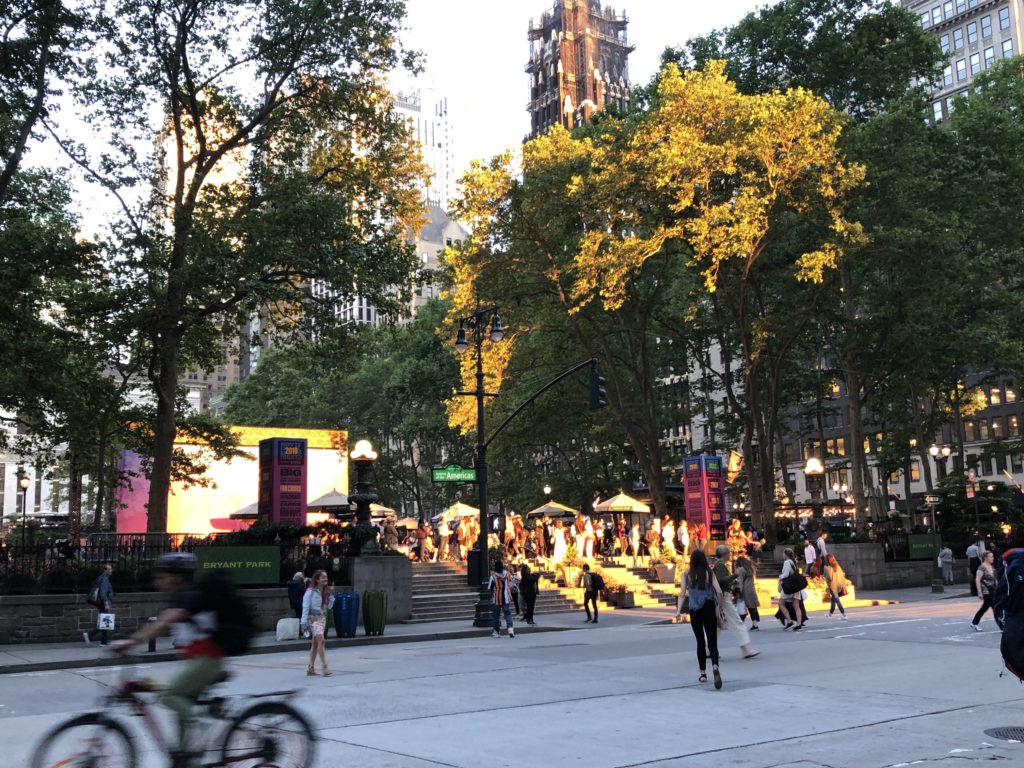
There are two main types of advice writers are given: write what you know, and write to discover. But I think it’s more helpful to start where you are instead of looking for inspiration “out there” somewhere. What killed a lot of my own creative efforts before I even started was not accepting where I was in life or not thinking there was anything of value in my current life to write about. It’s so hard to produce any art if you’re resisting your reality. How can you stay present and pay attention to the creative potential around you? But actually every human being has a ton of life experience to draw on and a rich life, even if it seems like not the life you want for yourself at the moment, or not the idea of the kind of art you wanted to make.
One thing I learned from watching Neil Gaiman’s MasterClass, and from working at the Morgan Library & Museum when the JRR Tolkien exhibition was on view, is that really imaginative writers who build immensely complex worlds are still drawing images, thoughts, and emotions from their mundane lives and putting them into their works. Which means that you don’t need to have amazing adventures and travels to have something interesting to write about, or to be able to write the big, adventurous story you want to write, but you do need to have experiences that are interesting to you. All that really needs to be true is the emotional logic within the story.
When I first started brainstorming the novel I’m working on now, I had in mind a setting that I’d never personally experienced, and I realized it would take lots and lots of research to evoke the kind of natural landscapes I wanted to depict, especially if I was writing from the perspective of a protagonist super in tune with nature. And I know next to nothing about even basic gardening. Months later, I found myself living in my hometown again, and I started to see all the nature spots near town and realized that New Jersey is full of forests, all of which I’d missed when I was growing up there. So now I have a totally authentic experience that I didn’t need to do laborious research over, and I can use the self as a research method by spending time in those places and use that to imagine a fictional world, rather than focusing on this ideal setting and how far away I was from it.
Sometimes we don’t think any of our life experiences are interesting, but it’s really how you pay attention to them that really makes an experience come to life. I’m starting to realize we all have way more material than we know what to do with it. In fact, it’s because our lives are often so fast-paced and overwhelming that paying attention in that slow, meditative, daydreamy way feels so out of reach.
Basically, we don’t need to engineer to the right conditions for creativity on this big scale. We don’t need to read everything in a particular genre to write it, or keeping doing more research, and we don’t need to become a different kind of artist than we already are to be a good one. Instead, it’s about how we show up in our own lives.
The best art comes from the deepest part of you, so it’s much more about getting in touch with who you are or who you’ve been than it is about looking for something “out there” that you don’t have yet.
Some questions to think about:
- How can you use the stuff that’s in your life already in your creative work?
- What obsesses and fascinates you?
- What do you spend your days thinking about? What kinds of problems?
- Where are the places you go, what are the things you do? What are your experiences at work or at home and how can you expand on them or imagine them in a different setting/scenario?
- If you have a story idea, can you infuse this fictional world with an emotional undercurrent from your own life?
- Can you go to places in your life that inspire or delight or frustrate you and look at it as a stranger? What kinds of things or events or dramas might happen there?